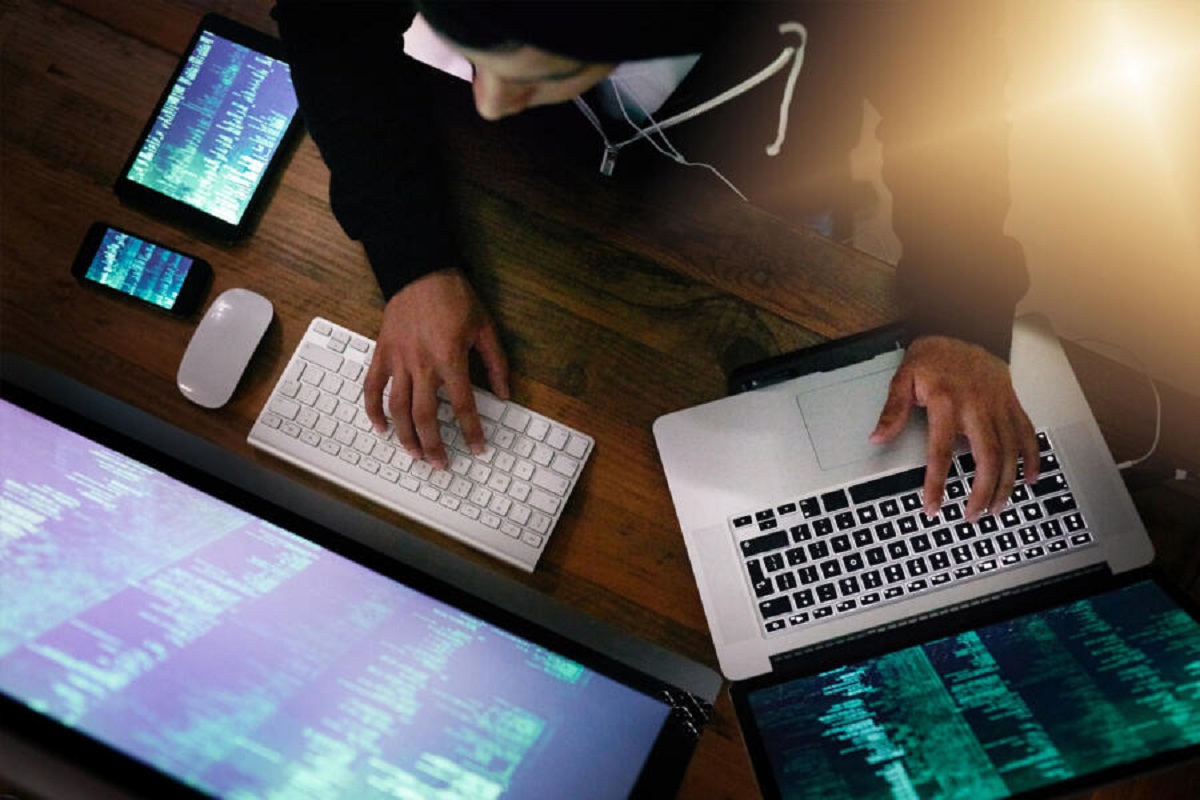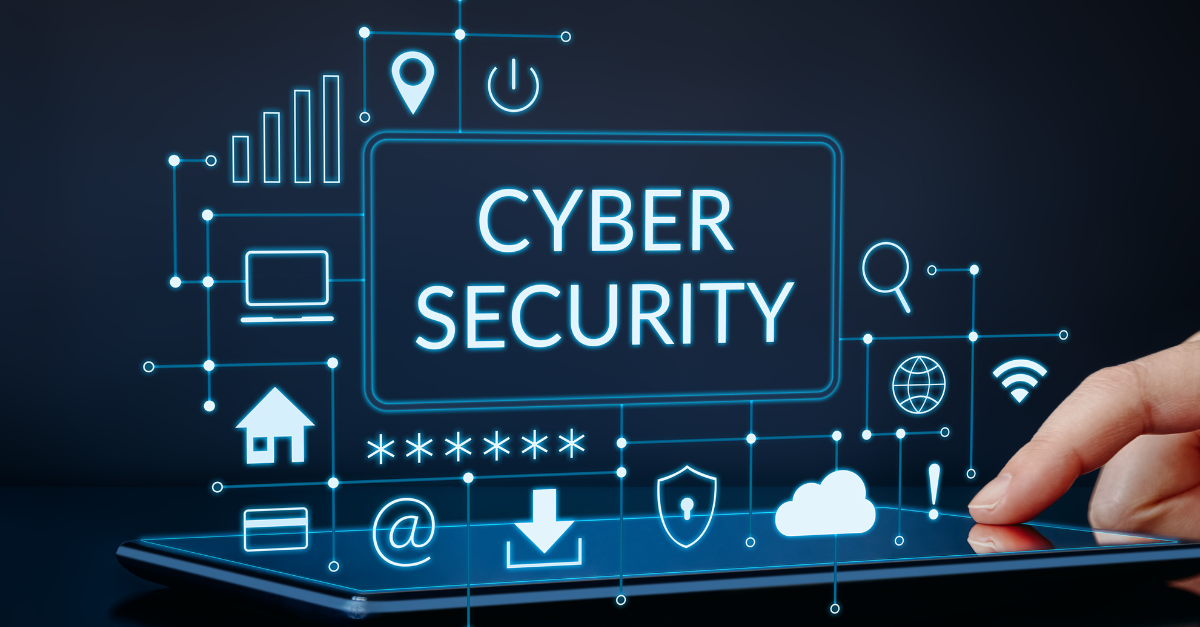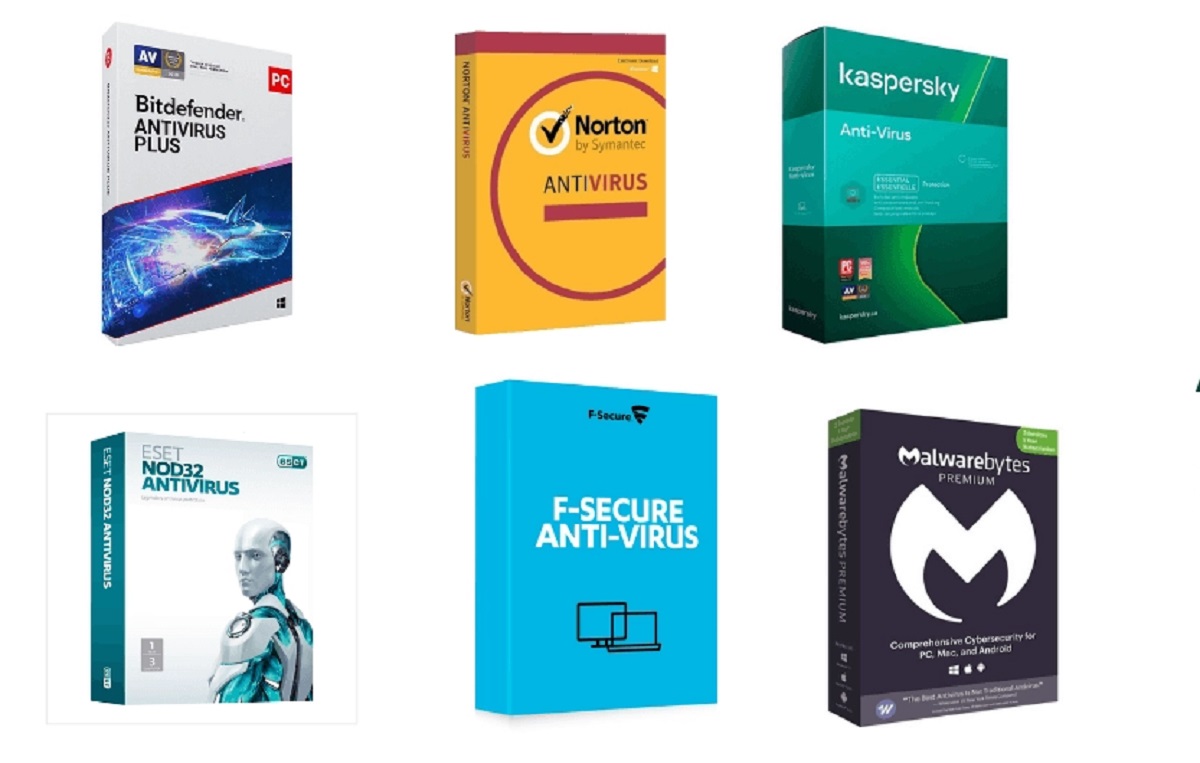Introduction
Cybersecurity has become a critical concern in today’s digital landscape. With the constant rise in cyber threats and attacks, the demand for cybersecurity professionals has surged. As organizations strive to protect their sensitive data and systems, the question of how many hours cybersecurity workers put in their job has gained importance.
The field of cybersecurity is dynamic and fast-paced, requiring dedicated individuals who are committed to safeguarding information and maintaining the integrity of digital platforms. The number of hours worked by cybersecurity professionals can vary depending on various factors, including the nature of the job, work environment, and individual preferences.
In this article, we will explore the different aspects of cybersecurity work hours, considering both full-time and part-time positions, as well as remote and shift work scenarios. We will also delve into the concept of overtime and discuss the importance of maintaining a healthy work-life balance in the demanding field of cybersecurity.
Whether you are aspiring to enter the cybersecurity industry or seeking information on work hours for organizational purposes, understanding the dynamics of cybersecurity work hours is crucial. So, let’s dive into the details and uncover the factors that influence the number of hours cybersecurity professionals dedicate to their work.
Understanding the Importance of Cybersecurity Work Hours
In today’s digital age, cybersecurity is of utmost importance for individuals and businesses alike. With the ever-increasing cyber threats and attacks, organizations need to ensure that their IT infrastructure and data are safeguarded against unauthorized access and breaches.
Cybersecurity work hours play a crucial role in maintaining the security posture of an organization. The more time and effort dedicated to cybersecurity, the better equipped organizations are to detect, prevent, and respond to potential threats. Cybersecurity professionals work diligently to identify vulnerabilities, develop security measures, and implement strategies to protect sensitive information and systems.
Moreover, in the face of evolving cyber threats, cybersecurity professionals must stay updated with the latest tools, techniques, and best practices. This continuous learning process often requires additional hours beyond the regular work schedule. By dedicating sufficient time to their work, cybersecurity professionals can efficiently address emerging threats and implement proactive measures to safeguard against potential risks.
On the flip side, inadequate cybersecurity work hours can have severe consequences. Insufficient time devoted to cybersecurity increases the likelihood of security gaps and vulnerabilities going unnoticed. This can leave organizations exposed to data breaches, financial losses, reputational damage, and legal liabilities.
Additionally, the importance of cybersecurity work hours extends beyond organizations to individuals, as cyber threats can impact personal lives and information security. Cybersecurity professionals play a vital role in protecting individuals from identity theft, online scams, and privacy breaches.
Understanding the importance of cybersecurity work hours is crucial for organizations and individuals alike. By allocating the necessary time and resources to cybersecurity, organizations can mitigate risks, safeguard data, and foster a trustworthy digital presence. At the individual level, cybersecurity professionals contribute to the overall security and well-being of society, making their work hours vital in safeguarding privacy and preventing cybercrimes.
Factors Affecting Cybersecurity Work Hours
The number of hours worked in the field of cybersecurity can vary greatly based on several factors. Understanding these factors is essential in comprehending the varying work hour requirements within the industry. Let’s explore the key factors that influence cybersecurity work hours:
- Job Role and Responsibilities: Different cybersecurity job roles have varying work hour expectations. For instance, security analysts may work regular business hours, while incident response teams may need to be available around the clock to handle emergencies.
- Industry and Sector: Work hour expectations can also differ depending on the industry and sector. Government cybersecurity roles, for example, may involve irregular hours due to heightened security concerns, whereas roles in the finance sector may follow more traditional work hours.
- Workload and Project Deadlines: The workload and project deadlines can impact the number of hours cybersecurity professionals need to dedicate to their work. During high-pressure periods, such as incident response or system upgrades, longer work hours may be required to meet critical deadlines.
- Work Environment: The work environment can significantly influence work hours. For example, in managed security service providers (MSSPs), professionals may be required to work varying shifts or be on-call to provide continuous monitoring and support.
- Level of Experience: The experience level of cybersecurity professionals can also impact their work hours. Less experienced professionals may need more time to complete tasks, while seasoned experts may have developed more efficient workflows and require fewer work hours.
It’s important to note that while these factors can influence the number of hours worked, there is no fixed standard for cybersecurity work hours. Each organization and individual may have different expectations and requirements based on their specific circumstances and priorities.
By considering these factors and understanding the unique demands of the job, employers and cybersecurity professionals can establish realistic work hour expectations that balance the need for security with employees’ well-being and productivity.
Full-Time Cybersecurity Work Hours
Full-time cybersecurity professionals typically work a standard 40-hour workweek, following regular business hours. The specific work hours may vary depending on the organization and job role. However, it is not uncommon for cybersecurity professionals to work additional hours as the nature of their work often requires ongoing monitoring, incident response, and proactive security measures.
In certain industries or during critical periods, such as security breaches or system upgrades, full-time cybersecurity professionals may need to work extended hours, including evenings and weekends, to ensure the security of systems and data. These additional hours may be necessary to complete urgent tasks, respond to incidents, and mitigate potential risks effectively.
Full-time cybersecurity professionals also need to allocate time for continuous learning and professional development. Staying updated with the latest threats, technologies, and industry best practices is crucial to adapting to the ever-changing cybersecurity landscape. This often involves dedicated hours for research, training, and obtaining relevant certifications.
Furthermore, collaboration and coordination with other teams, such as IT and management, also contribute to the workload of full-time cybersecurity professionals. Meetings, reporting, and communicating security measures may require additional work hours beyond individual cybersecurity tasks.
While full-time cybersecurity work hours can be demanding, organizations understand the criticality of securing their digital assets and often provide necessary resources, tools, and support to ensure the effectiveness of cybersecurity professionals in their role.
It is essential for cybersecurity professionals to manage their work hours effectively to maintain a healthy work-life balance. Encouraging breaks, time management strategies, and proper task prioritization can minimize burnout and enhance productivity within the scope of full-time work hours.
Part-Time Cybersecurity Work Hours
Part-time cybersecurity work offers flexibility for individuals who may not be available for a full-time commitment or have other professional responsibilities. Part-time cybersecurity roles can be found in various organizations, including small businesses, consulting firms, or even as freelance opportunities.
Part-time cybersecurity work hours can vary depending on the specific arrangement and agreement between the employer and the cybersecurity professional. Typically, part-time cybersecurity professionals work fewer than 40 hours per week, with the number of hours per day or week being adjusted to accommodate their availability.
Part-time cybersecurity professionals often have the flexibility to decide on their work schedule, which allows them to balance their cybersecurity commitments with other personal or professional obligations. They may choose to work specific days or hours that align with their preferences and availability.
It’s important to note that part-time cybersecurity roles do not necessarily mean a lower level of commitment or diminished importance. Regardless of the number of hours worked, cybersecurity professionals in part-time positions are still responsible for maintaining the security of systems, identifying vulnerabilities, and implementing appropriate measures.
For part-time cybersecurity professionals, effective time management is crucial in maximizing productivity during the limited work hours. Prioritizing tasks, leveraging automation tools, and collaborating efficiently with other team members or departments can help ensure job responsibilities are met effectively within the allocated hours.
Part-time cybersecurity work can be an attractive option for individuals seeking flexibility or those looking to gain experience in the cybersecurity field while pursuing other interests or commitments. It allows skilled professionals to contribute their expertise in securing digital assets while accommodating their personal or professional needs.
Organizations can also benefit from part-time cybersecurity professionals by having access to skilled expertise on a flexible basis, allowing them to meet their security needs without committing to a full-time role.
Remote Cybersecurity Work Hours
The advent of technology and connectivity has opened up opportunities for remote work in various industries, including cybersecurity. Remote cybersecurity work offers flexibility and eliminates geographical limitations, allowing professionals to perform their duties from anywhere in the world.
Remote cybersecurity work hours can vary depending on the organization, job role, and time zone differences. While some organizations may require remote cybersecurity professionals to adhere to traditional business hours, others may offer more flexibility in terms of when the work is performed.
Remote cybersecurity professionals often have the freedom to manage their work hours as long as they meet the required deliverables and maintain effective communication with their team. This flexibility enables individuals to work during their most productive hours, adapt to personal commitments or different time zones, and achieve a better work-life balance.
However, remote work comes with its challenges. For some professionals, the flexibility of remote work may make it difficult to establish boundaries between work and personal life. The absence of physical separation between the workplace and personal space can lead to longer work hours or difficulty disconnecting from work.
On the other hand, remote work also offers the advantage of avoiding commute time and the ability to set up a comfortable and personalized workspace. This can lead to increased productivity and efficiency, as remote cybersecurity professionals can allocate more time to their actual work rather than commuting or navigating office dynamics.
Effective time management is crucial for remote cybersecurity professionals to ensure the completion of tasks and maintain productivity. Establishing a routine, setting clear work hours, and using productivity tools or techniques can help remote workers stay organized, focused, and achieve their professional goals.
Collaboration and communication are key components of remote cybersecurity work. Utilizing various communication tools and platforms is essential to stay connected with team members, share progress, discuss challenges, and maintain efficient collaboration, especially in projects that require coordination among multiple stakeholders.
Remote cybersecurity work allows organizations to tap into a global talent pool and provide opportunities to skilled professionals who may not be available for on-site work. It offers the flexibility to balance work and personal commitments and has become an increasingly popular option for both professionals and organizations seeking to embrace remote work culture.
Shift Work and Cybersecurity
Cybersecurity threats do not adhere to a specific time frame, and organizations must ensure vigilant protection of their systems and data around the clock. This requirement has led to the implementation of shift work in the cybersecurity field.
Shift work in cybersecurity involves organizing teams in shifts to provide continuous monitoring, incident response, and support. Shifts typically cover a 24-hour period, allowing organizations to maintain a strong security posture and respond promptly to any potential threats or incidents.
The shift work schedule in cybersecurity can vary based on the organization’s needs and the criticality of the information and systems being protected. Common shift schedules include morning, afternoon, and overnight shifts or a rotation schedule where team members take turns covering different shifts.
Shift work in cybersecurity is prevalent in industries that require constant monitoring, such as financial institutions, healthcare organizations, and government agencies. These sectors often have stringent security requirements and need to address threats promptly, regardless of the time of day.
Working in shift rotations can offer challenges, particularly in maintaining a healthy work-life balance and adjusting to irregular sleep patterns. However, some individuals may prefer shift work due to the flexibility it provides, such as having weekdays off or scheduling personal appointments during non-peak hours.
Effective communication and coordination are crucial in shift-based cybersecurity teams to ensure seamless transitions and information sharing between shifts. Detailed incident handover reports, clear documentation, and collaboration tools are essential for the smooth transfer of responsibilities and knowledge between team members.
Furthermore, organizations must prioritize the well-being of shift workers and provide adequate support. This includes implementing strategies to minimize fatigue, providing regular breaks, offering access to wellness programs, and promoting a healthy work environment.
Shift work in cybersecurity relies heavily on close collaboration among team members, as individuals from different shifts need to work together to address incidents and exchange relevant information. Communication channels, such as messaging platforms or incident management systems, play a crucial role in ensuring seamless coordination and effective incident response.
Overall, shift work in cybersecurity is essential for organizations to maintain a robust security posture and protect critical information and systems. It requires skilled professionals who are adaptable, possess strong communication skills, and can effectively work in a non-traditional work schedule. Organizations must create a supportive and conducive environment to ensure the well-being and productivity of shift workers in the cybersecurity field.
Overtime in the Cybersecurity Field
The dynamic and ever-evolving nature of cybersecurity often demands additional work hours beyond the regular schedule. Overtime in the cybersecurity field refers to the extra hours worked by professionals to fulfill job responsibilities and address critical security needs.
There are various factors that can contribute to the need for overtime in cybersecurity. These include the urgency of incident response, timely completion of security projects, unexpected security breaches, and the continuous monitoring of systems.
During security incidents or breaches, immediate action and quick resolution are crucial. Cybersecurity professionals may need to work overtime to investigate the incident, analyze the impact, contain the threat, and ensure the swift restoration of affected systems.
Additionally, implementing security projects or system upgrades often require dedicated time and effort beyond regular working hours. This includes configuring new security measures, conducting tests, and ensuring seamless integration without disrupting day-to-day operations.
Cybersecurity professionals also invest extra hours in continuous learning and staying updated with the latest threats and security practices. The rapidly changing cybersecurity landscape demands ongoing training and skill development to effectively protect against evolving threats, which can extend beyond regular work hours.
While overtime hours are sometimes necessary to fulfill critical security needs, organizations must ensure that overtime is managed responsibly. It is crucial to prioritize the well-being of cybersecurity professionals and prevent burnout.
Efficient workload distribution, realistic project deadlines, and adequate staffing can help mitigate excessive overtime requirements. Employers should strive to foster a supportive work environment that encourages work-life balance, promotes proper rest, and compensates employees fairly for overtime work.
Regulations and labor laws may vary depending on the country or region, so organizations must comply with applicable laws regarding overtime compensation and ensure that all overtime work is properly recorded and compensated.
Overtime in the cybersecurity field is often an integral part of maintaining optimal security and meeting the demands of a constantly evolving threat landscape. Balancing the need for overtime with the well-being and productivity of cybersecurity professionals is essential for long-term success and the overall effectiveness of security measures.
Balancing Work-Life in Cybersecurity
The field of cybersecurity can be demanding, requiring dedicated time and effort to ensure the protection of systems and data. However, maintaining a healthy work-life balance is crucial for the well-being and long-term success of cybersecurity professionals. Here are some strategies for achieving a balanced work-life in the cybersecurity field:
Set Boundaries: It is important to establish clear boundaries between work and personal life. Define specific work hours and try to adhere to them. Avoid checking work-related emails or engaging in work tasks outside of those designated hours, whenever possible.
Prioritize Self-Care: Take care of your physical and mental well-being. Make time for regular exercise, proper nutrition, and sufficient sleep. Engage in activities that help you relax and recharge, such as hobbies or spending time with loved ones.
Manage Workload: Prioritize tasks, set realistic goals, and manage your workload effectively. Learn to delegate when possible and communicate openly with supervisors and colleagues about workload and deadlines to prevent becoming overwhelmed.
Utilize Technology Smartly: Leverage technology tools and automation to streamline processes and increase efficiency. Take advantage of cybersecurity tools that can help automate routine tasks and free up time for other important responsibilities.
Continuous Learning: Stay updated with the latest trends and practices in cybersecurity to enhance your skills and stay relevant. Dedicate regular time for professional development, attend conferences, participate in webinars, or enroll in online courses to ensure continuous growth in your field.
Communicate and Collaborate: Effective communication and collaboration with your team members are crucial for managing work tasks and responsibilities. Regularly communicate with your colleagues, share knowledge, and seek support when needed to foster a collaborative and supportive work environment.
Take Breaks: Allow yourself regular breaks during the workday. Short breaks can help refresh your mind, improve focus, and prevent burnout. Take a walk, meditate, or engage in other activities that can help you recharge and maintain productivity.
Seek Support: If you find yourself struggling with work-life balance, don’t hesitate to seek support from your peers, supervisors, or even professional counselors. They can provide guidance and offer strategies to help you achieve a healthier work-life balance.
Balancing work-life in the cybersecurity field is essential for long-term career satisfaction and overall well-being. By implementing the strategies mentioned above and customizing them to your specific circumstances, you can achieve a better harmony between work and personal life, leading to increased productivity, reduced stress, and improved job satisfaction.
Conclusion
Cybersecurity work hours can vary depending on the job role, industry, and individual preferences. Full-time cybersecurity professionals typically work a standard 40-hour workweek, with potential for additional hours during critical periods. Part-time and remote cybersecurity work offer flexibility for individuals with other commitments, allowing them to dedicate the required hours based on their availability.
Shift work is common in cybersecurity, ensuring continuous monitoring and support to address threats around the clock. Overtime may be necessary in response to incidents, completing projects, or staying updated with the rapidly evolving threat landscape.
While the demands of cybersecurity can be demanding, achieving a healthy work-life balance is crucial. Setting boundaries, prioritizing self-care, effectively managing workload, utilizing technology smartly, continuous learning, and fostering effective communication and collaboration are key strategies in attaining this balance.
Organizations must prioritize the well-being of cybersecurity professionals by promoting work-life balance, providing necessary resources, and ensuring fair compensation for overtime work.
In conclusion, finding the right balance between work and personal life is crucial in the cybersecurity field. By establishing healthy work habits, nurturing a supportive work environment, and prioritizing well-being, cybersecurity professionals can excel in their roles while maintaining a fulfilling personal life. A balanced approach not only enhances productivity and job satisfaction but also contributes to the overall effectiveness of cybersecurity in safeguarding digital assets and protecting against threats.

























